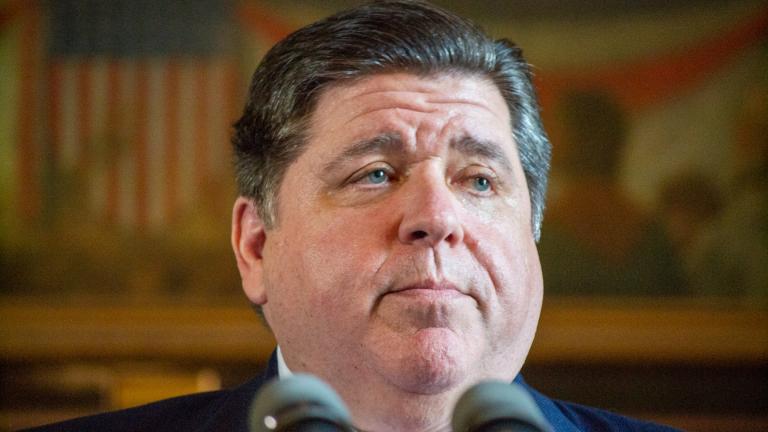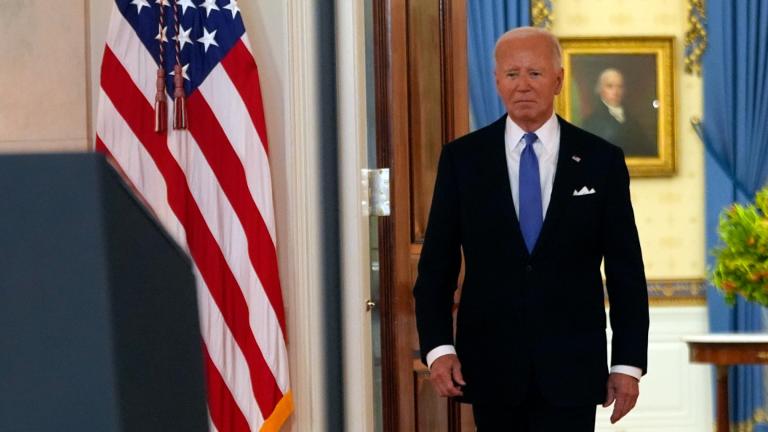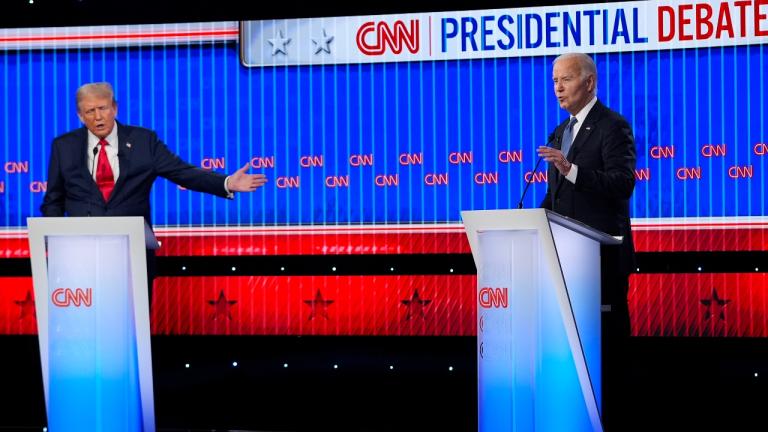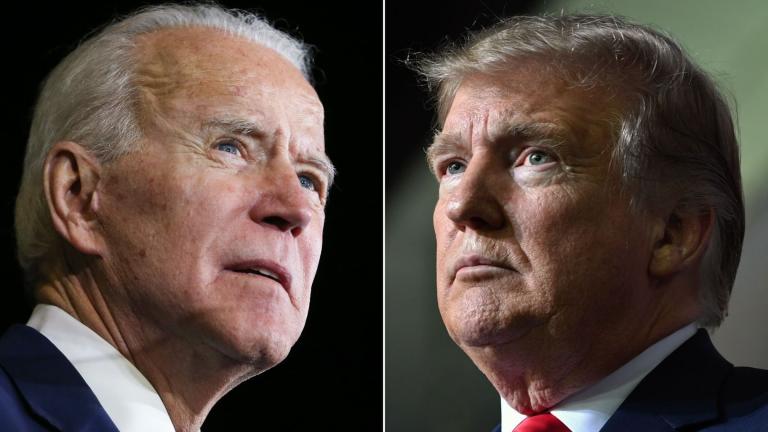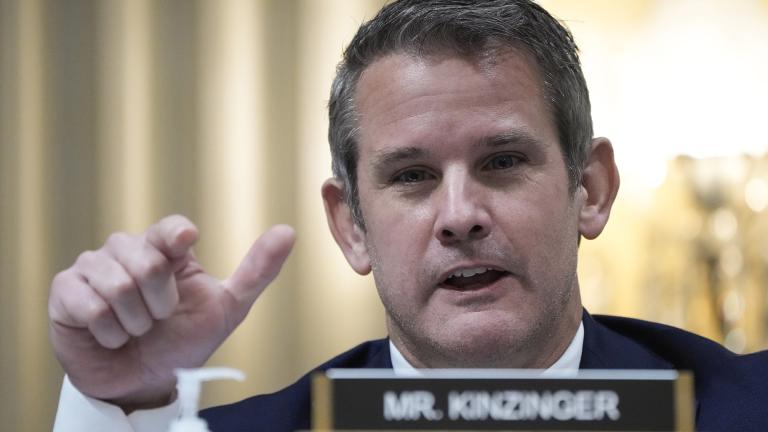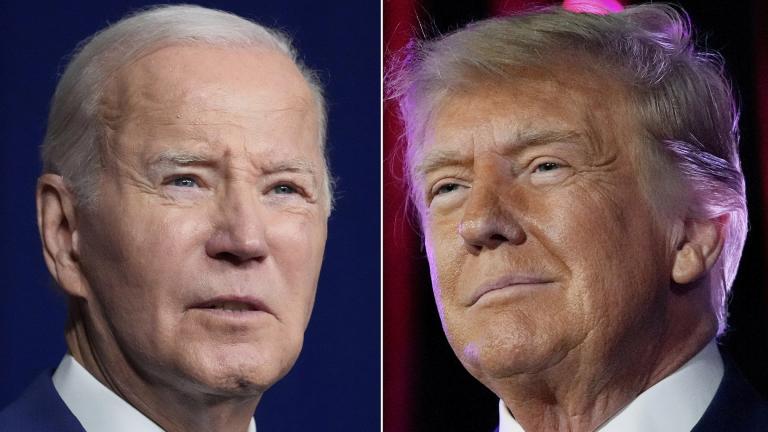In a new front as the U.S. attempts from afar to influence what’s happening in Ukraine, President Joe Biden announced Tuesday a ban on all oil imports from Russia.
“That means Russian oil will no longer be acceptable in U.S. ports. … Americans have rallied to support Ukrainian people and made it clear we will not be subsidizing Putin’s war,” Biden said.
While intended to inflict damage on Russia, the move is likely to have repercussions at home.
According to AAA, prices in Cook County are averaging more than $4.60 a gallon, and it’s close to that in the collar counties.
In Chicago, regular gas is going for more than $4.70; a year ago this time it was at $3.20.
It’s not just local; the national average is about $4.10 a gallon.
“In fact, that average price is the highest ever in nominal terms. But not when you correct for inflation; corrected for inflation the price was higher in 2008,” said Don Fullerton with the University of Illinois’ Institute of Government and Public Affairs. “So it’s not outrageous, but it will keep going up with volatility. It’s going to bounce around as different countries decide whether to ban imports from Russia, and it’s going to bounce around along with the progress of the war. If things go badly, the price will go up more.”
Tuesday’s high prices came even before the import ban was finalized.
Northwestern University finance professor Phillip Braun said that’s because other efforts to punish Russia for instigating war with Ukraine has caused gas prices to rise over the past couple of weeks, “when the U.S. and Europe imposed financial sanctions on Russia. Those sanctions make it very difficult for Russian banks to do international transactions. That means that Russian oil companies cannot do international business. So that in itself is a major bottleneck for Russia and probably more important than what the U.S. did today by limiting imports.”
Braun said the ban on Russian energy imports isn’t likely to hit too hard on either the U.S. or Russia given that the United States gets about 8% of its oil from Russia, while the U.S. accounts for about 5% of Russian exports.
Still, Matt Hart executive director of the Illinois Trucking Association said gas prices will in the immediate future ding trucking companies as they’ll be on the hook for these higher prices of gas and diesel and it takes time for them to recoup higher costs. Smaller, owned-and-operated truckers will be especially impacted in the short term.
“In the long term, it hurts the consumer because in the long term eventually the higher cost of transporting goods leads to higher costs at the grocery store, higher costs at the department store, higher costs on Amazon, because it costs more to transport goods,” Hart said. “And our industry transports over 70% of the nation’s freight, and when our costs go up, our input goes up, ultimately that’s going to lead to higher costs for the consumer in the end.”
Hart said it’s a “double whammy” on the consumer, given that a truck driver shortage has led to high labor costs.
Still, he says, the trucking industry supports the decision to refuse Russian oil.
He said the U.S. is well-positioned to react and minimize a temporary peak in prices.
“The United States of America is the largest oil producer in the world, and we have a lot of untapped wells. And we have wells that have been turned off as fuel prices went down, crude oil went down,” Hard said. “Now that crude oil has gone up, it is now financially viable to turn those wells back on and we certainly hope that’s what happens in the coming weeks Because we have the ability to meet the energy demands of the United States of America without the need for foreign oil.”
But hiring back employees and increasing production and refinery capabilities takes time.
This as inflation is already an economic concern.
Higher gas prices will exacerbate that, which could present a political problem for Biden, even if a Wall Street Journal poll shows voters support today’s move.
A handful of governors, including Wisconsin’s Democratic Gov. Tony Evers are calling on Washington to temporarily put a hold on a federal gas tax.
“At a time when people are directly impacted by rising prices on everyday goods, a federal gas tax holiday is a tool in the toolbox to reduce costs for Americans, and we urge you to give every consideration to this proposed legislation,” they wrote in a letter to Biden.
Illinois Gov. J.B. Pritzker’s office has not responded to whether he supports that.
As he campaigns for reelection, Pritzker has proposed freezing Illinois’ motor fuel tax, which per a law he previously signed that ties the tax to the consumer price index, is set to increase in July by 2 cents, from 39.2 cents a gallon to 41.4 cents a gallon.
CEO of the Illinois Retail & Fuel Association, Josh Sharp, said that’s merely “putting off a future tax hike, which is really all the governor is talking about” and “does nothing” to rein in Illinois’ already high tax on gasoline.
Construction trade labor groups and the trucking association also oppose the motor fuel tax freeze; they argue it would make little difference to drivers, while shorting $135 million from road and bridge upgrades necessary for safety.
Gas station owners instead suggest that Illinois lift a 6.25% state sales tax on gasoline, that’s charged on top of the motor fuel tax, proceeds from which go to the state’s general fund.
“When the prices go up, Illinois generates a lot more money through the sales tax,” Sharp said.
State budget negotiations are ongoing.
Sharp said retailers have yet to see a rush or slowdown from customers at the pump.
Gas price fluctuations can also influence profits for rideshare drivers, may lead to fewer cars on the roads which impacts accident rates, and affect airlines’ balance sheets.
Meanwhile, Northwestern’s Braun says increases related to Ukraine are a worthy expense.
“The American consumer, when they go to the gas pump, they need to accept the fact that they need to make sacrifices for the Ukrainians,” he said. “Yes, gasoline prices are high. But the war in Ukraine is horrible. And there is a trade-off that Americans must make, and costs that we must bear.”
Meanwhile, U of I’s Fullerton said consumers should already have been preparing for higher prices regardless, as government policy choices are made with the intent to combat climate change.
“The consumers in the Chicago area have known that prices are going to go up because of climate change. There’s going to be climate policy, there’s going to be other world disruptions – a few years ago we had problems with world markets for oil in terms of demand from China or supply from Iran,” Fullerton said. “You kind (of) know that they’re going to get higher when other countries around the world start doing more about climate change, in other words they want to discourage the use of gasoline.”
He said individuals can make choices such as riding a bike or buying a hybrid car to reduce their own dependence on gasoline.
“It’s a way to ensure ourselves against this volatility,” Fullerton said. “If we can reduce our dependence on oil at all then that will help ensure ourselves generally against these kinds of geopolitical shocks to the economic system.”
Follow Amanda Vinicky on Twitter: @AmandaVinicky

